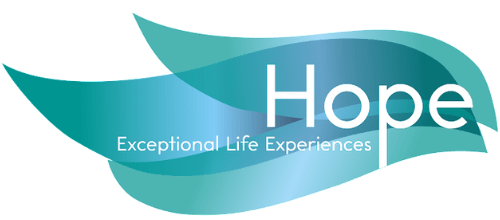The job search can feel daunting for anyone, but for individuals with disabilities, it can present a unique set of challenges. Fear not. This guide is packed with practical tips and resources to empower you on your journey to getting a job with a disability.
We’ll tackle common questions, explore strategies to make your resume and applications shine, and highlight resources to help you connect with supportive employers. So, grab a cup of coffee (or your favorite beverage!), get comfortable, and let’s navigate the job market together.
What Laws Protect My Rights in the Job Search?
The Americans with Disabilities Act (ADA) prohibits discrimination against qualified individuals with disabilities in all aspects of employment, including the application process, hiring, firing, promotions, and training.
The Job Accommodation Network (JAN) https://askjan.org/ offers a wealth of information on the ADA and reasonable accommodations in the workplace.
How Can I Highlight My Skills and Experience Effectively?
Resumes and cover letters are your chance to make a lasting first impression. Here’s how to showcase your strengths for getting a job with a disability:
Focus on Abilities:
Shift the focus from your disability to your skills and experience. Use strong action verbs to describe your achievements and how you’ve added value in previous roles.
Quantify Your Accomplishments:
Did you streamline a process, increase sales, or exceed goals? Use numbers to demonstrate the impact you’ve made.
Tailor Your Resume:
Research the company and position, and tailor your resume to highlight the specific skills and experience they’re seeking.
Keywords are Key:
Identify relevant keywords from the job description and strategically weave them throughout your resume and cover letter. This helps applicant tracking systems (ATS) recognize your qualifications.
Highlight Transferable Skills:
Don’t underestimate the value of transferable skills like problem-solving, communication, teamwork, and time management.
Be Upfront About Accommodations (if applicable):
If you require reasonable accommodations to perform the job effectively, you can mention this in your cover letter after you’ve landed an interview.
How Can I Highlight My Skills and Experience Effectively?
There’s no one-size-fits-all answer. The decision to disclose your disability is a personal one. Here are some factors to consider:
Does the job description mention it?
If the job description highlights a commitment to diversity and inclusion, you might feel comfortable disclosing your disability.
Does it impact your ability to perform the job?
If you require reasonable accommodations, disclosing your disability may be necessary.
How comfortable are you?
Ultimately, the decision rests with you. You are in control of how much information you share.
Where Can I Find Job Opportunities That Welcome People with Disabilities?
Many resources cater specifically to job seekers with disabilities. Here are some starting points:
Disability-Focused Job Boards:
Several online job boards list positions specifically for individuals with disabilities. Consider checking out sites like JOBABLE, National Disability Rights Network, and Careers with Disabilities [invalid URL removed].
Government Agencies:
The Department of Labor’s Office of Disability Employment Policy (ODEP) https://www.dol.gov/agencies/odep offers resources and programs to connect job seekers with disabilities to employers. They have a great website with helpful information on a variety of topics related to employment and disability.
Disability Rights Organizations:
Many disability rights organizations offer career development and job placement services. Look for organizations in your area or ones that cater to your specific disability.
Diversity & Inclusion Pages on Company Websites:
Many companies showcase their commitment to diversity and inclusion on their websites. Explore these pages to see if they offer specific programs or resources for job seekers with disabilities. You can also try searching the company name with keywords like “disability inclusion” or “accessible workplace.”
Bonus Tip: Network Your Way to Success!
Building your network is crucial for any job search, but especially for getting a job with a disability.
Here are some ways to make connections:
Professional Associations:
Join professional associations in your field. Many associations have online communities and host events where you can connect with other professionals and learn about job opportunities.
Online Communities:
There are numerous online communities specifically for people with disabilities. These communities can be a great source of information, support, and job leads. Look for groups on LinkedIn, Facebook, or disability-focused websites.
Industry Events:
Attend industry conferences, workshops, and webinars. These events are a great way to meet potential employers and learn about current trends in your field.
Informational Interviews:
Reach out to professionals you admire and request informational interviews. These conversations are a chance to learn about their career paths and gain valuable insights into your desired field.
Volunteer Work:
Volunteering is a fantastic way to gain experience, develop your skills, and build your network. Look for volunteer opportunities at organizations related to your field or your interests.
Preparing for the Interview: Your Chance to Shine!
Landing the interview is a win! Now it’s time to showcase your skills and personality. Here are some tips to help you ace your interview for a job with a disability:
Do Your Research:
Research the company and the specific position you’re interviewing for. This demonstrates your interest and helps you tailor your responses.
Prepare for Common Questions:
Anticipate common interview questions and practice your responses beforehand.
Be Upfront About Accommodations (if applicable):
If you require reasonable accommodations to perform the job effectively, discuss this with the interviewer after they’ve offered you the position.
Focus on Your Strengths:
Highlight your skills, experience, and accomplishments. Use the interview as an opportunity to showcase your value as a potential employee.
Ask Questions:
Don’t be afraid to ask thoughtful questions about the role, the company culture, and accessibility considerations.
Remember: The interview is a two-way street. You’re also evaluating the company to see if it’s a good fit for you.
You Are Not Alone: Building a Support System
The job search can be stressful, but you don’t have to go through it alone. Here are some ways to build a strong support system:
- Family and Friends: Surround yourself with positive and supportive people who believe in you.
- Disability Support Groups: Connecting with others who understand your experiences can be a source of encouragement and advice.
- Career Coaches and Mentors: Consider working with a career coach or mentor who can provide guidance and feedback throughout your job search.
- Hope Human Services: Our team is here to help! We offer a variety of resources and services to support individuals with disabilities in their career journeys. Visit us at www.hopehumanservices.com to learn more about how we can help you achieve your career goals!
Believe in Yourself and Your Potential!
The job search can be challenging, but with the right preparation, a positive attitude, and a supportive network, you can achieve your goal of getting a job with a disability.
Remember, your disability does not define you.
You are a talented and capable individual with a lot to offer. Believe in yourself, and go out there and conquer the job market!
Want A Helping Hand?
Hope Human Services provides disability services in Washington State. Our team doesn’t just provide support, but creates exceptional life experiences.

